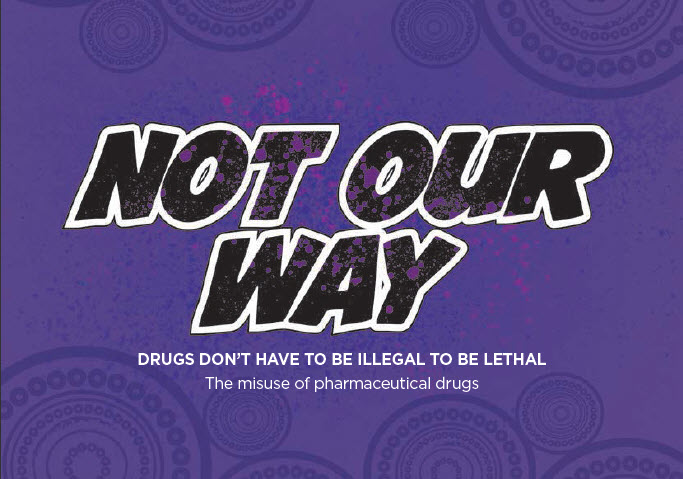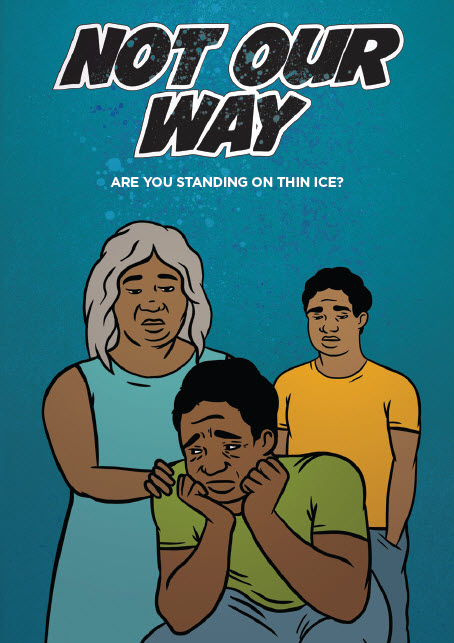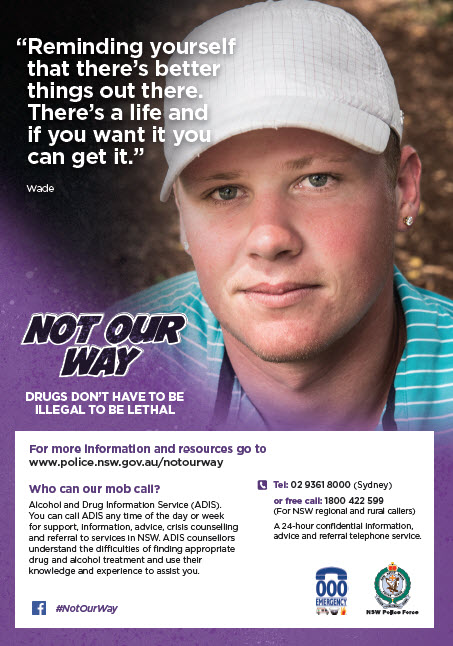In line with the NSW Police Force's Aboriginal Strategic Direction, the organisation has four key priority areas. These key priorities are linked to the service delivery priorities and the corporate strategies of the NSWPF.
The four priority areas are:
- Ensure community safety
- Improve communication and understanding between police and Aboriginal people.
- Reduced involvement and improved safety of Aboriginal people in the criminal justice system
- Aboriginal Youth Offending The Outcomes, Actions and Targets
Help Us Close The Gap
From January 2022, NSW Police will ask all victims of crime, persons of interest, persons in custody, and people where police powers are used, whether they identify as Aboriginal and/or Torres Strait Islander. Asking allows us to improve safe custody practices, refer vulnerable people to support services and divert them from the criminal justice system.
What am I being asked?
It is important for us to ask and know whether you identify as Aboriginal and/or Torres Strait Islander, so we can work together to build safer communities and reduce over-representation in the criminal justice system.
We ask these questions of everyone, regardless of appearance, country of birth, or whether you are known to us.
If we forget to ask, please tell us if you identify as Aboriginal and/or Torres Strait Islander.
We respect that people have the right to refuse to answer. We will encourage you to answer, but you do not have to.
What if I answer 'Yes'?
Telling us that you identify as Aboriginal and/or Torres Strait Islander helps us connect you to a range of services, people and programs that can offer support.
It is your choice to accept or decline any services offered to you.
What about my privacy?
All information collected by the NSW Police Force is subject to privacy laws to ensure that your information is protected and used appropriately.
Aboriginal Strategic Direction 2024
The Aboriginal Strategic Direction 2024 is the overarching document which guides the NSWPF in its management of Aboriginal issues. It seeks a genuine level of Aboriginal community ownership and involvement through a consultative and proactive approach.
A key approach of this Policy is to involve Aboriginal people in the consultation process so that they understand the objectives and intent of the NSWPF and that the community is engaged in the process.
Read the Aboriginal Strategic Direction 2024 (PDF)
Aboriginal Community Liaison Officers
The Aboriginal Community Liaison Officer (ACLO) is a member of the Local Area Command, Crime Management Team with the responsibility for providing advice and support to Police in the management of Aboriginal issues across the Local Area Command (LAC). ACLOs assists in developing, implementing, monitoring and reviewing programs that bring about positive outcomes between Police and Aboriginal people which are in line with NSW Police Force policy.
The ACLO works closely with Aboriginal communities, Aboriginal community organisations and other service providers in their day to day activities. The ACLO encourages positive working relationships and partnerships between the NSW Police Force and Aboriginal people as well as promoting an awareness of Aboriginal issues to Police.
ACLO's can be found in the following police stations: Albury, Armidale, Batemans Bay, Bathurst, Bourke, Brewarrina, Broken Hill, Campbelltown, Coffs Harbour, Condobolin, Dareton, Denilliquin, Dubbo, Glebe, Gilgandra, Grafton, Griffith, Inverell, Kempsey, Lake Illawarra, Lake Macquarie, Lismore, Macquarie Fields, Maroubra, Marrickville, Moree, Mt Druitt, Nambucca Heads, Nowra, Orange, Redfern, Raymond Terrace, Tamworth, Taree, Tweed Heads, Walgett, Wagga Wagga, Wellington, Wilcannia.
Key Areas:
- Establish open lines of communication between police and Aboriginal people.
- Provide advice to the Aboriginal communities about the functions of NSW Police Force.
- Identify barriers that prevent open communication and consultation between Aboriginal people and Police.
- Foster partnerships between Police and Aboriginal communities.
- Encourage Aboriginal people to work with Police to address crime and violence in the Aboriginal community.
- Promote strong partnerships between Aboriginal communities and NSW Police Force to develop programs that address issues due to Aboriginal disadvantage.
- Provide a link between Police and the Aboriginal community through the application of the NSW Police Force Aboriginal Strategic Direction.
- Actively encourage Aboriginal community members to interact with police by ensuring the Police Aboriginal Consultative Committee (PACC) is promoted widely.
Aboriginal Trackers
Since early times, government agencies, explorers, surveyors and members of the general public called upon the tracking abilities of Aboriginal men and women.
The skills of trackers were drawn from bush and hunting knowledge held by Aboriginal groups throughout NSW. A good tracker could pick up the smallest change in the landscape and quickly work out in which direction a person or animal was moving. Although trackers are no longer employed by the police, the skills and knowledge are still retained by many Aboriginal people throughout NSW.
Visit the Pathfinders website for the history of NSW Aboriginal Trackers
Not Our Way
Not Our Way is a campaign that focuses on the harms associated with the use of pharmaceuticals, ice and heroin and the impact this has on family and community. It also aims to provide advice for parents, families and friends of Aboriginal people with a pharmaceutical, ice or heroin dependency.
The messages were informed through a consultation process with members of the Aboriginal community and agencies in metropolitan and rural locations across NSW. The campaign is based on real stories and experiences of Aboriginal people across NSW who shared their experiences so they could help others.
Key message
The key messages of the campaign are to:
*Call Triple Zero for help from the police and ambos
*Don't be ashamed to ask for help
*Don't ignore the early signs and act fast before it is too late
Not Our Way - Heroin
A number of communities in NSW have experienced an increase in the use of opiates among members (of these communities).
Opiates are a class of drugs that include the heroin, synthetic opioids such as fentanyl, and pain relievers available legally by prescription, such as oxycodone (OxyContin®), hydrocodone (Vicodin®), codeine, morphine, and many others.
Our message to these communities is that if drugs are taking over, help is available.
The NSW Alcohol and Drug Information Service (ADIS) runs a confidential telephone counselling service, that's available 24 hours a day/7 days per week. It's toll free 1800 250 015
People don't have to put up with drugs being sold or made in their community. Call Crime Stoppers on 1800 333 000 or report online

Not Our Way - Ice
In NSW most people don’t use methylamphetamines. In 2013, 1.4% of people aged over 14 had recently used methylamphetamines. However, this research did show that Aboriginal people are 1.6 times more likely to use methylamphetamine.
More recently, there has been an increase in people seeking treatment and the rate of hospitalisations for methylamphetamine related problems has also increased. Aboriginal women are 10 times more likely, and the men are 6 times more likely, to end up in hospital.
So what has changed? There has been a significant increase in users reporting they are now using more frequently and have switched to the more potent form, ice. As a result, the problems caused by ice in our community are growing.
Pharmaceutical drugs provide many benefits including increasing our quality of life. Most people use these drugs appropriately, following the guidance provided by a doctor. However, the misuse of pharmaceuticals has been reported to be increasing and is emerging as an issue of concern.
Prescription medications are responsible for more drug-related deaths than illicit drugs, with the greatest increase occurring in rural and regional Australia. Research shows that Aboriginal people are 1.5 times more likely to misuse pharmaceutical drugs than non-Aboriginal people.
Campaign resources
To order hard copy resources, please visit the Your Room website
Story books

- Storybook: Are you standing on thin ice? (PDF)
- Storybook: Drugs don't have to be illegal to be lethal (PDF)
Booklet

Posters

- Poster: Not Our Way - Glenn (PDF)
- Poster: Not Our Way - Wade (PDF)
- Poster: Not Our Way - Aunty Gwen (PDF)
- Poster: Not Our Way - Chloe (PDF)
Postcards

Resources
These PDF resources have been developed to assist and inform the Aboriginal community on a range of topics:
Aboriginal Community Liaison Officer
Child Abuse Information Brochure
Domestic Violence Evidence in Chief

